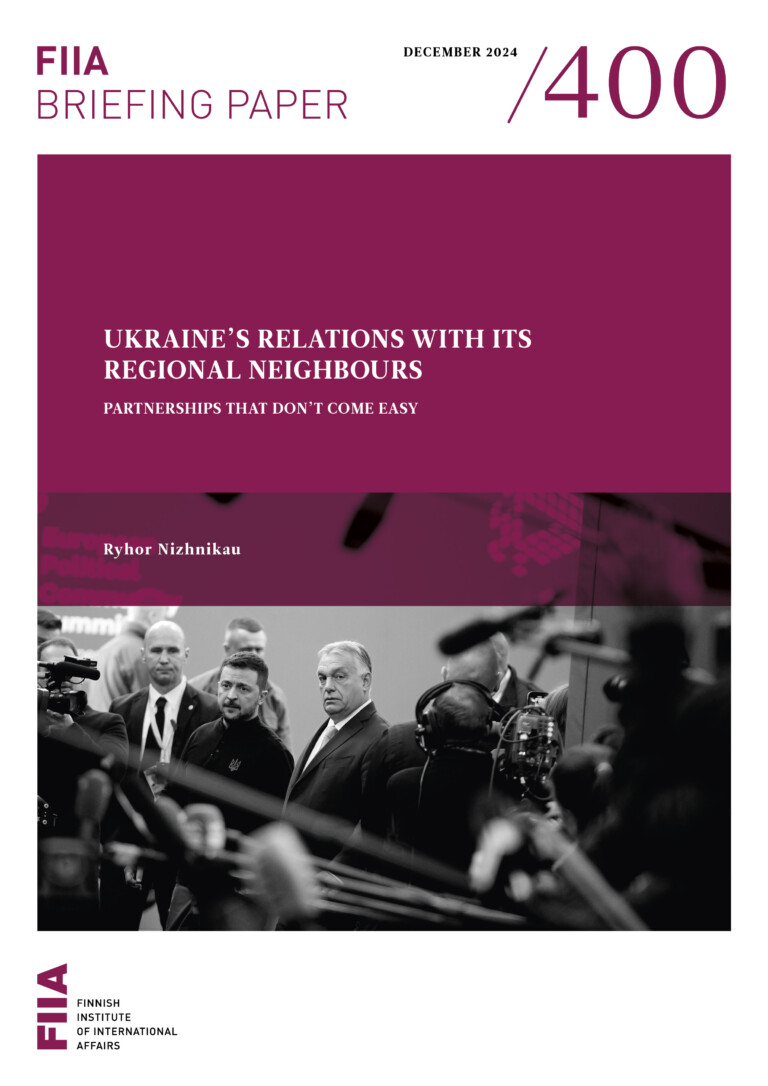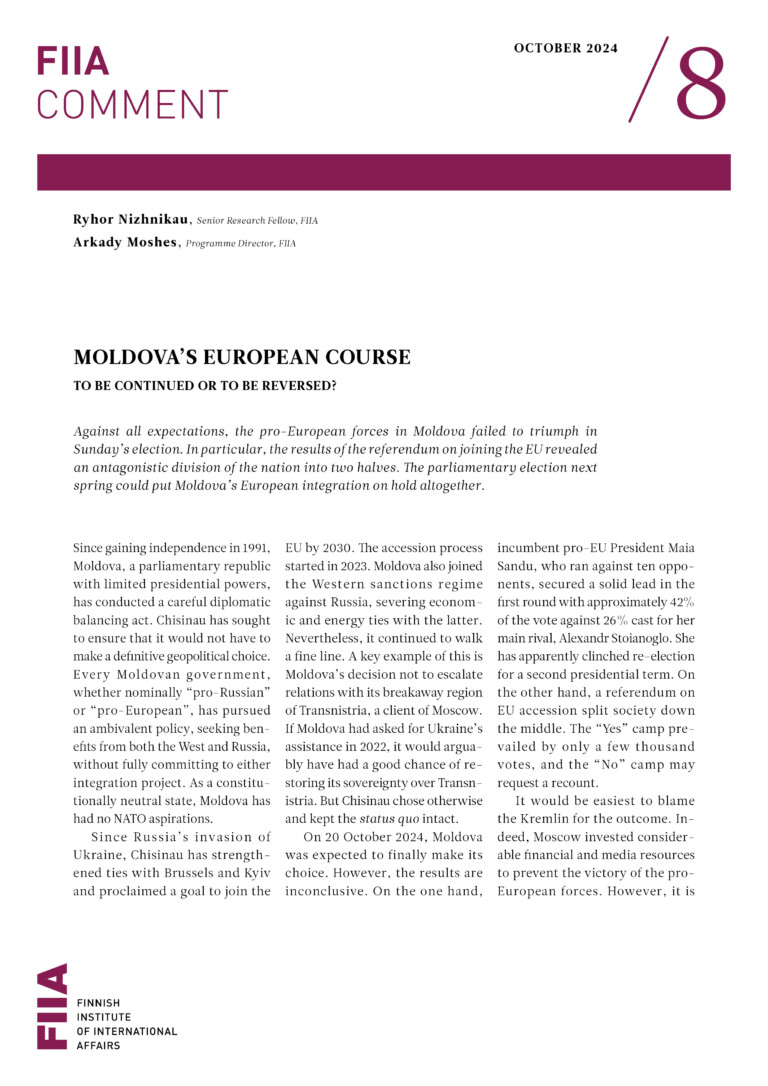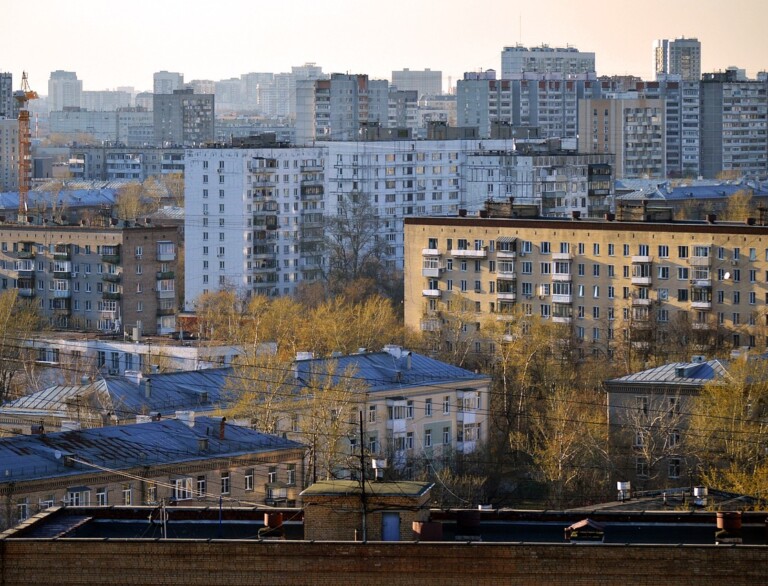Moldova’s presidential elections offer no hope for change in a country run by a destructive and shortsighted elite. Igor Dodon won the elections, but the main victor in 2016 is the oligarch Vlad Plahotniuc, who has monopolized power in Moldova.
Moldova’s presidential elections offer no hope for change in a country run by a destructive and shortsighted elite. Igor Dodon won the elections, but the main victor in 2016 is the oligarch Vlad Plahotniuc, who has monopolized power in Moldova.
Once the EU’s “star pupil”, Moldova elected Igor Dodon, leader of the Socialist Party (PSM), as its new President on November 13. Dodon, who won the second round with 52.1% of the votes, pledged to improve relations with Russia, defend the Orthodox religion and traditional values, and bring stability and order to Moldova. Maia Sandu, the unified pro-European opposition candidate, and Minister of Education from 2012 to 2015, received 47.8% of the votes.
However, these elections were not about the candidates, their geopolitical orientations, gender, traditionalist or liberal values and pro-Russian or pro-EU policies for Moldova, but against Vlad Plahotniuc and his monopoly on power.
Plahotniuc, a shadowy oligarch-politician with a fortune estimated at almost a third of Moldovan GDP, has fully consolidated his power in Moldova by, inter alia, expanding his influence over opposition parties in the parliament. His political rise started as a part of the EU-supported coalition, which has governed the country since 2009.
The coalition quickly descended into an acute inner struggle for political and economic power, in which Plahotniuc had emerged as the sole winner by early 2016. His main rival, another oligarch and former Prime Minister Vlad Filat, ended up in prison.
Plahotniuc is formally only a vice-chair of the Democratic Party (DPM), which won 19 out of 101 seats in the last parliamentary elections in 2014. Despite this, Plahotniuc practically controls a parliamentary majority through his informal power networks. The government is headed by DPM’s Pavel Filip, his business associate, while the Speaker of the Parliament is Andrian Candu, his relative. Law enforcement and the judiciary are also in Plahotniuc’s hands. The whole system is effectively built on massive corruption and lawlessness.
In this situation, the presidential elections were intended to serve as an illustration of Plahotniuc’s capacity to manipulate the political system and to become just another element in his power consolidation
scheme. In early 2016, when President Nicolae Timofti’s term was coming to an end, the ruling coalition lacked only four votes to elect his successor constitutionally by an indirect vote in the Parliament. At that time, Plahotniuc’s power positions were under constant pressure due to massive protests against his rule. So while these votes could easily have been purchased – a common practice in the parliament – the Constitutional Court unexpectedly ruled on March 4, 2016 that direct presidential elections were to be reintroduced. This decision successfully re-directed the efforts of the regime’s weak and divided opponents away from protests towards campaigning, which substantially eased political tensions and provided the government with time to stabilize its hold on power. Subsequently, the DPM candidate even pulled out of the presidential race.
Although the main candidates ran in protest against Plahotniuc, Dodon’s election will not bring change. The presidential powers are very limited, while Dodon, currently in charge of the main opposition force, is a man of this system and reportedly has good connections with Plahotniuc. Moreover, there is a general deficit of ideas within the opposition, while the people lack trust and hope where the possibility of change is concerned. The core question is what Plahotniuc will do next.
To preserve his power, Plahotniuc needs to perform well in the parliamentary elections in 2018. To do that, the government firstly has to continue with a combination of stabilization and socio-economic populist measures while simulating reforms. A new IMF loan and the resumption of EU budget funding will be very helpful in this respect.
Secondly, a major re-branding of the DPM is called for if a new political start is to materialize. 91.3% of the people distrust Plahotniuc and his party. Yet, even if re-branded, it will fight for votes in a left-leaning political sector, which is fully captured by Dodon’s PSM. Thus, in 2017 a major electoral reform is expected to bring a mixed electoral system. Electing half of the future MPs in single-seat districts is extremely advantageous for the DPM due to its material resources and strong influence on local administrations.
Finally, Plahotniuc’s ultimate goal seems to be to take over the PSM, which is now poised to win the parliamentary elections in 2018, and whose corruptibility makes it a convenient target for a merger.
There is not much that the EU can do to change the situation. Moldova depends on external assistance from both the EU and the US, but in the past, geopolitical calculations trumped reason, and sufficient conditionality to promote reforms was not applied. Trying to prevent what is considered to be a greater evil (a “pro-Russian” government), the West has been supporting the Moldovan ruling elites, who proclaim themselves to be “pro-European” and loot the state shamelessly.
The US government endorsed the Filip government in early 2016, thus helping Plahotniuc to maintain his power. Earlier, the EU chose to help sustain the corrupt and dysfunctional coalition and get it re-elected in 2014 by providing Moldova with a visa-free regime on the eve of the elections. Now, the “pro-Russian” Socialist Party, which previously promised to scrap the Association Agreement with the EU, for instance, will most likely win the 2018 parliamentary elections. But whether it will really be able to accomplish this as well as seek a rapprochement with the Kremlin is not at all certain.
What is certain is that the current system will not change until the West realizes that the “roving bandits” in Chisinau are no less detrimental to Moldova’s future than Russia. Western (even if reluctant) support for the ruling elites discredits the European idea in Moldova.
The EU should change its policy towards Moldova and terms of engagement with its destructive elites. Since 2009, support for European integration in Moldova has fallen from 70% to 40%. This is a worrying result which, among other things, indicates that a change in the policy of the West towards Moldova is long overdue.






